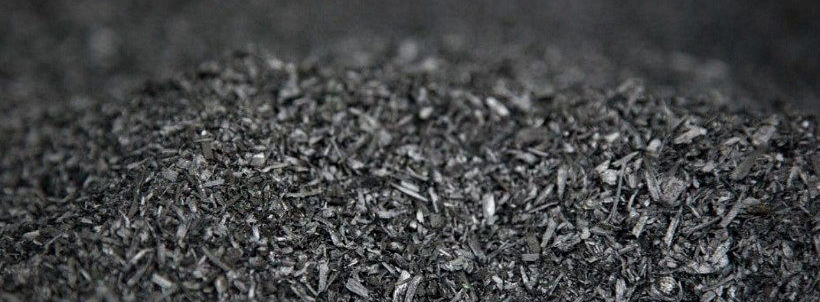Biochar
Biochar is a type of charcoal that is specifically produced for use in agriculture and soil improvement. It is made through a process called pyrolysis, which involves heating organic biomass (such as wood chips, agricultural residues, or crop wastes) in the absence of oxygen. The resulting biochar is a stable carbon-rich material that can be added to soil to enhance its fertility and quality.
When biochar is incorporated into soil blends, it offers several benefits that contribute to soil improvement:
- Soil Structure Improvement: Biochar has a porous structure with a large surface area, which helps to improve soil structure. It creates channels and spaces in the soil, enhancing its ability to retain water and nutrients. This increased pore space also promotes better aeration and drainage, reducing the risk of soil compaction.
- Nutrient Retention and Release: Biochar has a high cation exchange capacity (CEC), which means it can attract and retain nutrients like nitrogen, phosphorus, and potassium. This prevents nutrient leaching, making them available for plants over a longer period. Biochar also acts as a slow-release fertilizer, gradually releasing these nutrients as needed by plants.
- Water Retention: The porous nature of biochar enables it to hold moisture in the soil. It helps to retain water and reduce water runoff, particularly in sandy or loamy soils with low water-holding capacity. This can be beneficial during dry periods as it provides a reservoir of moisture for plants, improving drought resistance.
- Microbial Habitat: Biochar creates a favorable environment for beneficial soil microorganisms, such as bacteria and fungi. These microorganisms play a crucial role in nutrient cycling, decomposition of organic matter, and overall soil health. By enhancing microbial activity, biochar promotes a more fertile and productive soil ecosystem.
- Carbon Sequestration: Biochar is a stable form of carbon that can remain in the soil for hundreds to thousands of years, depending on the conditions. Adding biochar to the soil helps sequester carbon dioxide from the atmosphere, mitigating climate change by reducing greenhouse gas emissions.
It’s important to note that the effectiveness of biochar in soil blends can vary depending on factors such as the type of biochar used, soil type, climate, and crop requirements. Proper application rates and integration with other soil amendments are also essential for maximizing its benefits.



